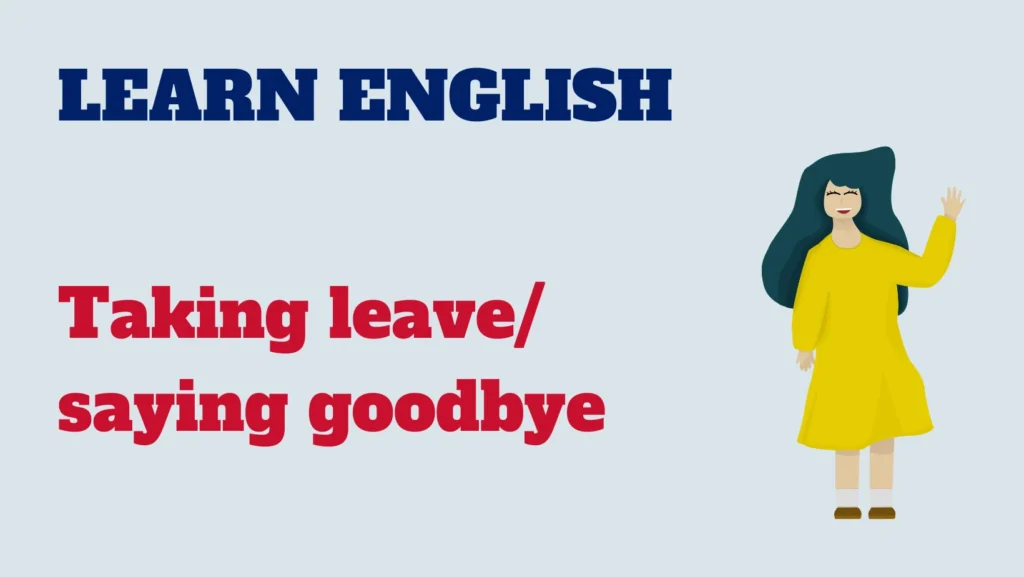Taking leave is an essential skill when learning a new language as it allows you to communicate effectively with native speakers. In English, there are many expressions and formulas for saying goodbye politely and appropriately.

In this lesson, we will explore some of these useful expressions to help you master this aspect of the English language.
Formal farewells
When bidding farewell to someone in a formal context, it’s important to use appropriate expressions.
Here are some examples:
Goodbye:
This expression is commonly used to say “bye” in a general sense.
Have a good day/evening:
Use this expression to wish the person a good day or evening.
See you soon:
This expression means “see you soon” and indicates that you hope to see the person again soon.
See you later:
Use this expression to say “see you later” when you plan to see the person later in the day.
Informal greetings
In a more informal context, you can use more relaxed expressions to take leave.
Here are some examples:
Bye:
This expression is used among friends or close acquaintances.
Ciao:
Although it’s an Italian word, “ciao” is also used in informal English to say goodbye.
See you in a bit:
Use this expression to indicate that you’ll see the person again later in the day.
Politeness formulas
When bidding farewell to someone you don’t know well or someone older, it’s common to use additional politeness formulas.
Here are some examples:
Thank you very much, goodbye.
By adding “thank you very much” before “goodbye,” you express gratitude to the person you’ve interacted with.
It was a pleasure meeting you.
Use this expression to convey your pleasure at having met the person you’ve been talking to.
At your service.
This formula indicates that you’re available to help the person if needed.
Taking leave is an important aspect of communication in English. By using appropriate expressions and politeness formulas, you can show your respect and mastery of the English language. Feel free to practice these expressions in your daily conversations and adapt them according to the context. Good luck in your learning of English! See you soon!



